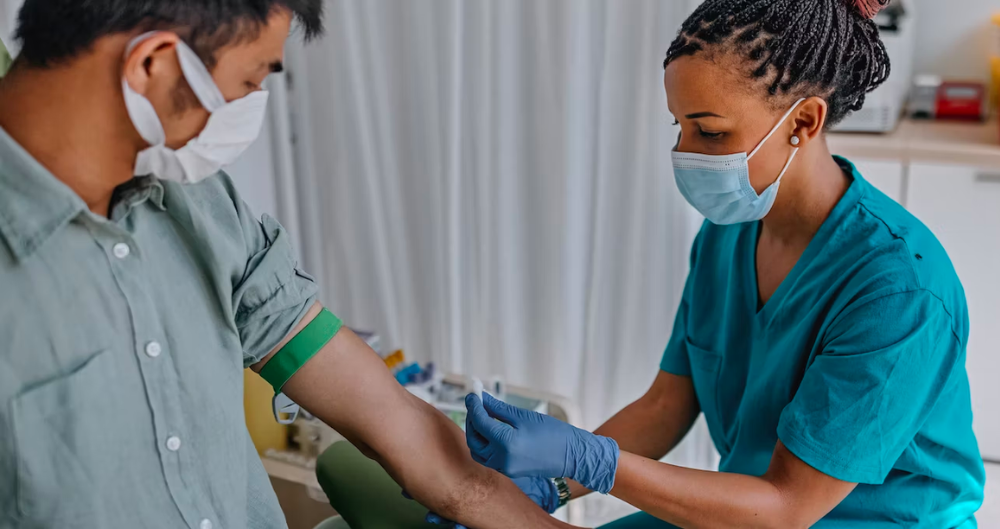How to Become a Phlebotomist in Florida

Phlebotomy jobs are expected to grow 8% through 2033, with about 19,600 openings each year—particularly in hotspots like Miami, Orlando, and Tampa. If you’re looking to break into this fast-growing field and want all the details on training, phlebotomist salary, and certification requirements, this guide shows you exactly how to become a Phlebotomist in Florida.
Key Points
- A phlebotomist is a healthcare professional trained to draw blood for medical testing, donations, and treatments.
- To become a phlebotomist in Florida, you must complete a state-approved training program, obtain certification, and pass background and drug screenings.
- Phlebotomy certification classes in Florida generally last between 2 to 6 weeks.
- The cost of phlebotomy training in Florida ranges from $500 to $1500.
- In Florida, the average phlebotomist salary is $39,680 per year ($19.08 per hour).
5. Apply for Phlebotomy Jobs in Florida
After earning your certification, start applying for phlebotomy jobs in hospitals, diagnostic labs, clinics, and mobile phlebotomy services across Florida. Highlight your certification, hands-on clinical experience, and patient care skills in your resume to stand out. Use job search platforms like My Next Move to find the latest openings and increase your chances of securing a position
Where to Find Phlebotomy Classes in Florida?
You can enroll in phlebotomy training at community colleges, vocational schools, or specialized technical institutes. Program costs typically range from $500 to $1,500, with course lengths between 2 and 6 weeks. Some institutions provide financial aid or payment plans, and local CareerSource Florida centers may offer additional funding.
If you want an easier option to find phlebotomy classes near you, use Dreambound to search for programs in Cape Coral, Deltona, Jacksonville, Miami, North Port, Orlando, Tampa, or online. Simply enter your ZIP code to discover the best local and virtual training options.
We encourage you to visit our guide to learn more about becoming a phlebotomist anywhere in the U.S., including the necessary steps, certification requirements, job opportunities, and phlebotomist salaries by state. It offers all the essential information you need to start your career.
Career Paths and Opportunities After Becoming a Phlebotomist
Once certified, you can advance your healthcare career or specialize:
- Management Roles: Transition into supervisory positions overseeing phlebotomy teams in hospitals or labs.
- Specialized Fields: Focus on pediatrics, geriatrics, or donor centers for higher pay and deeper expertise.
- Healthcare Cross-Training: Expand your credentials by becoming a Medical Assistant, EKG Technician, or Nursing Assistant.
- Further Education: Consider pursuing nursing or medical laboratory technology to broaden your scope of practice.
Frequently Asked Questions
How long is phlebotomy school in Florida?
The duration to become a phlebotomist in Florida typically ranges from 2 to 6 weeks, depending on the program structure.
How much does a phlebotomist make in Florida?
According to the Bureau of Labor Statistics (BLS), the median annual wage for phlebotomists in Florida was $39,680 in May 2023.
How much does a phlebotomist course cost in Florida?
The cost of phlebotomy courses in Florida can vary widely, typically ranging from $500 to $1,500, depending on the institution and program length. Additional expenses may include textbooks, supplies, and certification exam fees.
What is the highest paid phlebotomist job?
The highest-paid phlebotomist jobs often involve specialized roles or working in high-demand healthcare settings. For example, phlebotomists who specialize in areas such as pediatric or geriatric phlebotomy may command higher salaries due to their specialized skills and knowledge.
Final Thoughts
Becoming a phlebotomist in Florida is a fast, affordable, and rewarding career path in healthcare. With short training programs and high job demand, it’s an excellent entry-level medical profession.
Ready to start? Find state-approved phlebotomy training programs on Dreambound and take your first step today!
Thinking about a potential career transition? Dreambound offers detailed guides to help you with making an informed decision. Dive in below:

Athena is Co-founder and CEO of Dreambound.



